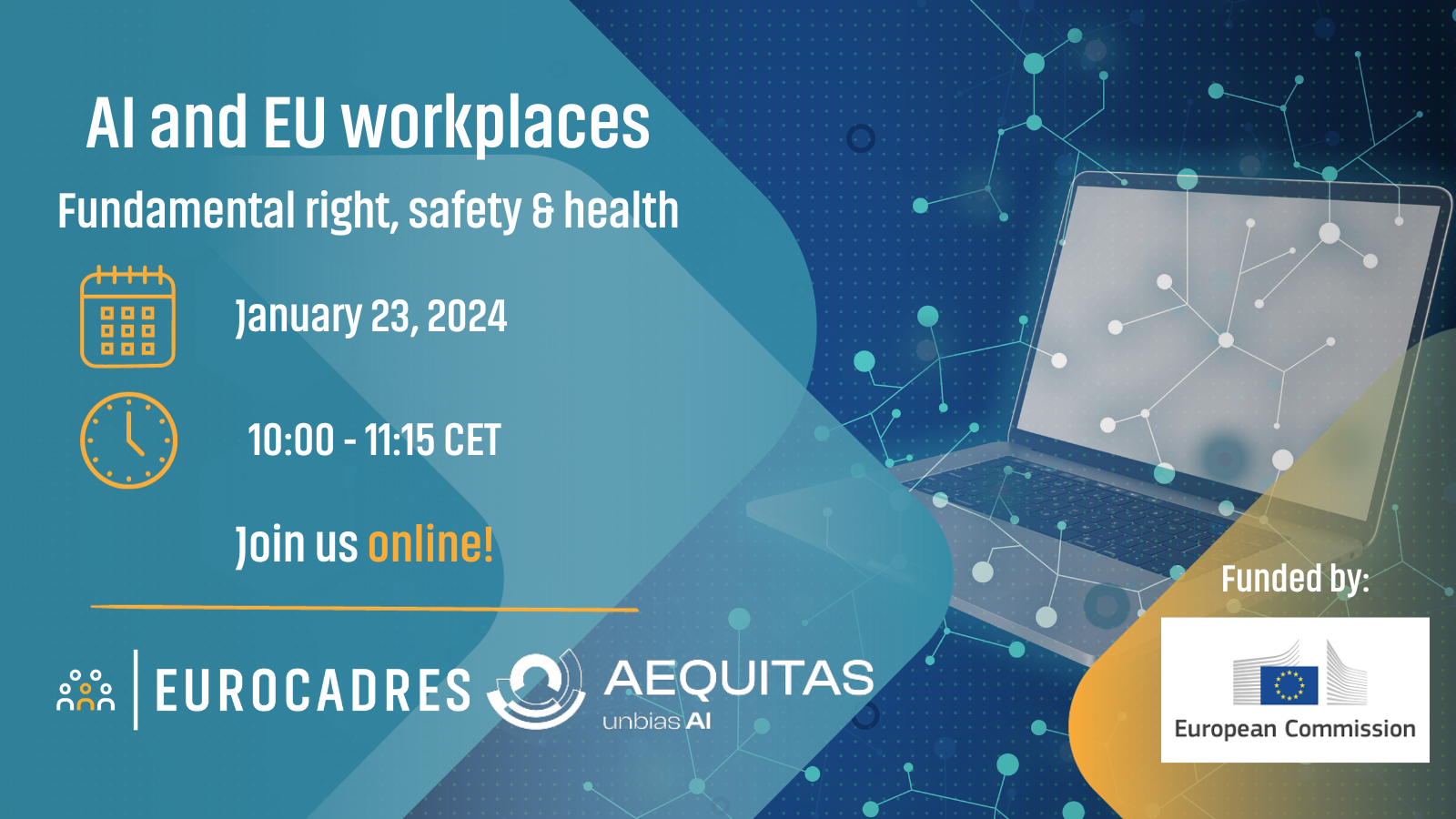
AI Act’s impact analysed in online event
Guests join us to decode the new legislation.

As we detailed last month, we now have a clearer understanding of how Artificial Intelligence (AI) will be addressed in European legislation. What is still unclear, however, is how the world of work will be shaken by these rapidly developing technologies, or indeed how employers and employees can seek to implement new rules in the digital sphere. While the EU’s AI Act approaches artificial intelligence mostly from a product-based perspective, it will undoubtedly impact European workplaces, with workers’ representatives, academics and civil society are eager to see the impact of the new rules.
To gaze through the fog, Eurocadres hosted a webinar on 23 January, entitled AI and EU Workplaces: Fundamental Rights, Safety and Health, providing an overview of the act’s process, a dive to its impact on workplaces, and finally taking a closer look on how AI fairness can be assessed and secured. The event was co-hosted by the AEQUITAS project, who are funded by the European Commission.
Following introductory remarks from our very own Ilkka Pentinnen Fouto, Paula Gurtler from the Centre of European Policy Studies guided participants through the rocky road of the AI Act negotiations. Sparing no expense on the difficulties of this process, Paula followed this by systemically addressing the content of the text, including an explanation of the differing risk categories included within the final draft.
The impact of the regulation on workplaces was explored by Käthe Munk Ryom of AC Denmark and a Eurocadres vice-president. While the AI Act falls short in addressing all the risks that AI systems may pose to workers, it offers other ways to address problematic or unethical AI use. Nonetheless, additional legislation is needed to close potential loopholes, which needs to be supported by training and tools to assess AI systems. Eurocadres will continue to call for a European directive on algorithmic management.
Maria Rebrean from ALLAI gave a presentation on how to approach the ethics, fairness and trustworthiness. The pursue of a fair AI requires legal, ethical and technical assessments, but when successful, provides trust and better functioning on AI systems. The AEQUITAS project, funded by European Commission, specifically focuses on providing both policy and practical tools to address these issues.
With over 90 registrants with us for the hour and fifteen minute event, there was plenty to discuss between our excellent speakers. A full recording of the event can be found here, with more in this field to come from us shortly.
